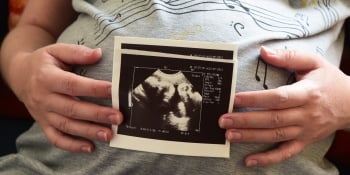Published: 31.03.2020

The European Court of Human Rights in Strasbourg rejected the complaints of two midwives from Sweden who were not employed in a hospital because of their opposition to participate in performing abortions. Local authorities also withdrew the scholarship for obstetric course for one of the women. The Court stated that such a restriction of the freedom of conscience aims to "protect health" of mothers who want to have an abortion, and women who decided to work as midwives must take this into account.
The first case concerned a nurse who registered for an obstetric course in 2012. During the course, the woman applied for a midwife position in two hospitals, stipulating in advance that due to her faith and morals she would not be able to participate in performing abortions. Both hospitals, despite staff shortages in maternity wards, refused to employ her because of this. In addition, the city authorities withdrew her scholarship for an obstetric course. The woman complained about religious discrimination to the Equality Ombudsman and court. However, both institutions recognised that abortions are a natural part of the midwifery profession, and the employer, according to the court and the Ombudsman, has the right not to agree to employ a person who does not want to participate in their performance.
A second nurse who registered for an obstetric course in 2014 was also not employed because of her opposition against performing abortions. As a result, she was transferred back to the position of a nurse against her will. The woman complained to the court about the violation of her religious freedom, but the court, like in the first case, decided that abortion was a professional duty of a midwife.
Both women lodged complaints with the European Court of Human Rights in Strasbourg, arguing that their rights to religious freedom and freedom of conscience were violated (Article 9 of the Convention for the Protection of Human Rights and Fundamental Freedoms). The Court declared both complaints "absolutely unacceptable". According to the judges, it is the state's duty to organise health care in such a way that the conscientious objection of individual medical employees does not impede access to abortion. In the ECtHR's opinion, the introduction of restrictions on the freedom of conscience intends to "protect health" of women who want to have an abortion. Moreover, the Court stated that if national law includes killing an unborn baby in obstetric duties, women who has voluntarily chosen the profession should take this into account.
"The European Court of Human Rights has put ideology above law, rejecting the complaints of midwives who wanted to follow their profession without participating in the shameful practice of abortion. Article 9 of the Convention guarantees the right to manifest their religious and moral beliefs to everyone, regardless of their profession. Meanwhile, the Court de facto stated that in some professional groups freedom of conscience does not apply. Historically, the midwifery profession has always consisted of receiving births and caring for pregnant women and those in the postpartum period; therefore, one cannot agree with the Court that killing unborn human beings is the essence of the profession. Also, the Court's statement that taking away from midwives the right to conscientious objection serves “health protection” is bizarre - abortion does not cure anything, but it is a procedure during which an unborn human being is killed, said Karolina Pawłowska from the International Law Centre of the Ordo Iuris Institute.
Cases Steen v. Sweden and Grimmark v. Sweden, ECtHR decisions of February 11, 2020.

· The European Parliament adopted a resolution calling for the inclusion of the so-called right to abortion in the Charter of Fundamental Rights of the European Union.

· The anti-life projects proposed by our ruling coalition are only the beginning of a political process leading to the normalisation of the mass killing of unborn children.
· The French law of 1974, which was only supposed to open the floodgates to prenatal killing for women in distress, in fact established a new legal foundation through which almost a quarter of a million children lose their lives in France every year.

· Abortion advocates manipulate human rights slogans which remain relevant to Polish citizens in order to force the public into supporting abortion.